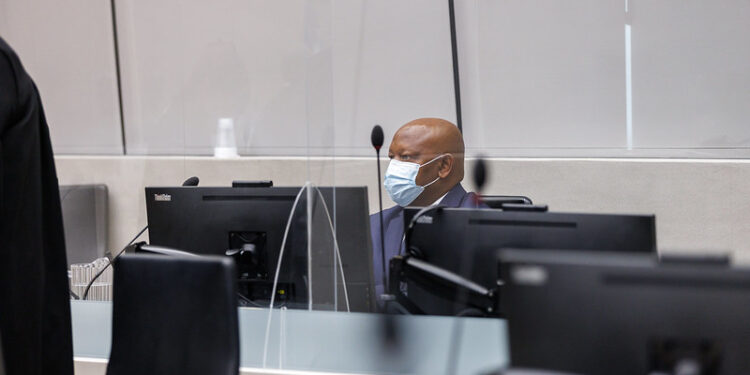Kenyan lawyer Paul Gicheru, who was facing charges of witness tampering before the International Criminal Court, was on Monday night found dead in his home in Karen, Nairobi.
Police, who said they were investigating the death, indicated that the lawyer was found unresponsive at about 7 pm. The cause of his death was yet to be established.
“He had late lunch and felt unwell. He went to bed but did not wake up,” a police source told local media.
The lawyer’s son was also said to have fallen ill and was admitted to hospital.
Gicheru was facing charges of witness tampering in the main Kenya case against President William Ruto and former journalist Joshua Arap Sang
His case was awaiting judgment, with both the prosecution and the defence having presented their final statements at the ICC on June 27, 2022.
Trial Chamber III’s Judge Miatta Maria Samba, the single judge presiding over the case, was expected to deliberate on the proceedings and set a date in the future when she will announce her verdict, either convicting or acquitting Gicheru.
Gicheru’s death means the end of his case at the ICC. The court’s spokesman, Fadi El Abdallah, confirmed to Journalists For Justice on Tuesday morning that there will be no judgment in the case since the accused is deceased.
The lawyer pleaded not guilty to all eight counts during the opening of his trial on February 15, 2022. The prosecution completed presenting its evidence on March 29, 2022 after calling eight witnesses, who were all cross-examined by the defence.
Gicheru’s counsel Michael Karnavas, who did not present a defence, countered the claims, accusing the prosecution of attempting to misdirect and influence the court by glancing over its “inadequacies and failures”.
Requested for comment by JFJ on Tuesday, Karnavas stated: “Mr. Gicheru voluntarily came to The Hague to clear his name. He came without any reservations and with full appreciation of the ICC process and consequences, fully confident that he would be acquitted. And as the trial showed, the ICC Prosecution had no credible evidence; nothing other than uncorroborated hearsay, conjecture, and outright lies. Indeed, the trial exposed the questionable methods the investigators resorted to, in trying to sanitise the grifters, liars, and opportunists it claimed to be witnesses.”
The Office of the Prosecutor has not yet responded to a request for comment.
Gicheru was facing charges of offences against the administration of justice consisting in corruptly influencing witnesses of the court between April 2013 and September 10, 2015.
The lawyer’s case springs from the Kenya situation, which resulted from the post-election violence of 2007/2008. The election results that ushered then President Mwai Kibaki into his second term were disputed by his main rival, opposition leader Raila Odinga, and sparked violence that engulfed many parts of the country. More than 1,000 people were killed and thousands of others were displaced in the raging ethnic animosity.
In the other Kenya case before the ICC that resulted from the violence, Kibaki’s successor Uhuru Kenyatta and Francis Muthaura, a senior government official, who were facing five counts of crimes against humanity, had the proceedings against them terminated on March 13, 2015, upon the prosecution’s notice of withdrawal of charges due to insufficient evidence.
In the case against Ruto, who was earlier this month sworn in as Kenya’s fifth president, and Sang, the six counts of crimes against humanity were vacated on April 5, 2016 due to witness interference. This means the case can be opened afresh in the future.
Gicheru surrendered to the Dutch authorities on November 3, 2020. His first appearance before the court was on November 6, 2020. The ICC Pre-Trial Chamber A confirmed the charges against him on July 15, 2021, and committed him to trial.
Gicheru pleaded not guilty to eight counts of corruptly influencing witnesses regarding the cases from the situation in Kenya.







